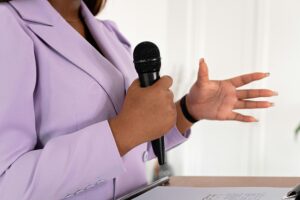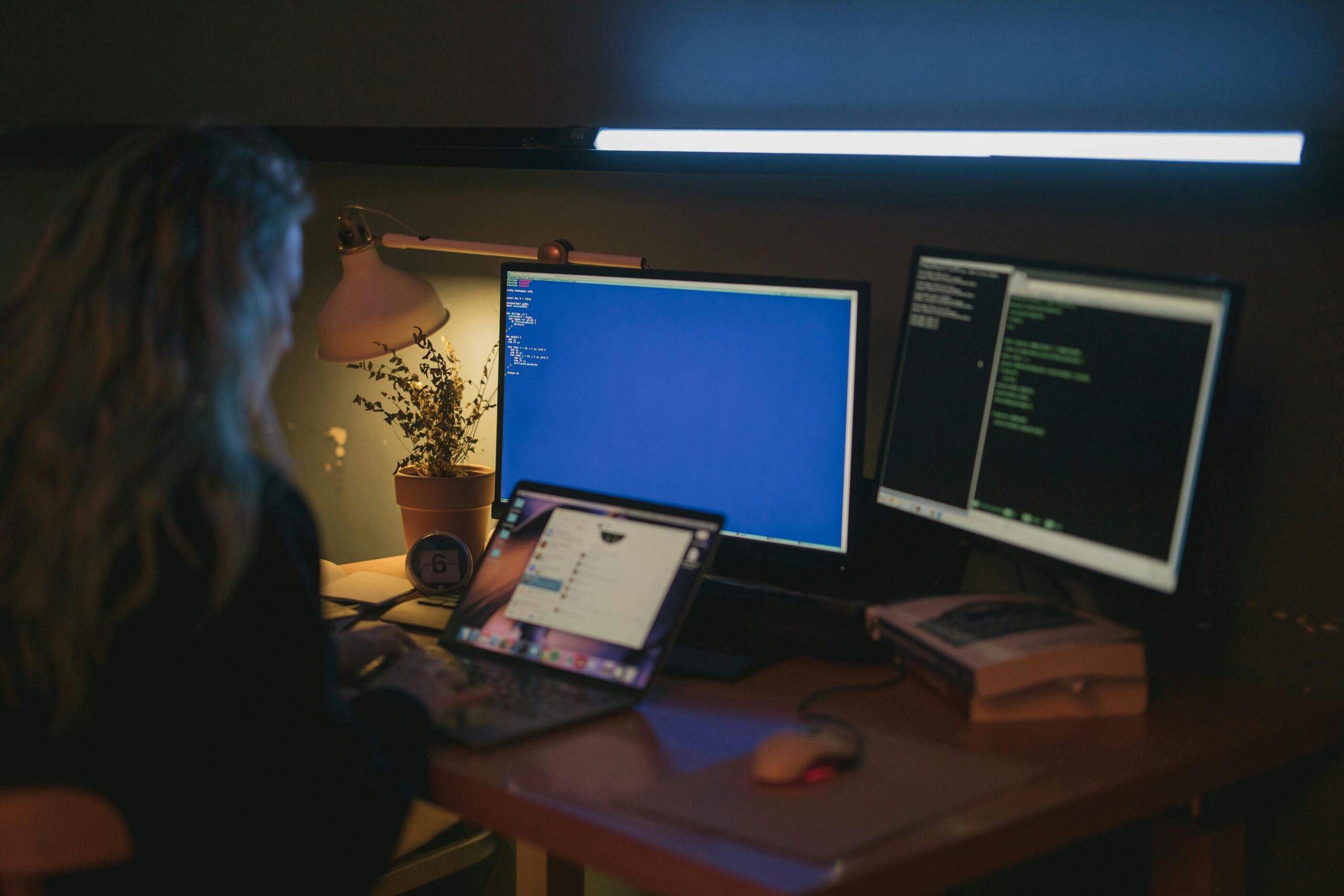Bringing together public policy and private-sector collaboration is no small task, but Anca Gherle has taken it on with passion and persistence. Starting as a political journalist while still in school, she quickly moved into the high-pressure world of political communications and strategy. The early challenges she faced fueled her drive to create meaningful change.
As her career progressed, Anca shifted from political strategist to legislative work, joining the Romanian Senate’s Commission of Labour, the European Parliament, and the national Government. Here, she gained a deep understanding of how policies are made, which helped her bridge the gap between government bodies, NGOs, and the private sector. Her commitment to transparency and public service has guided her every step of the way.
After working for 7 years within the national and EU administration, Anca decided it was time to put her experience and skills to the needs of the private sector, beginning as a Regional Public Affairs Manager at FREE NOW (Intelligent apps, a part of Mercedes Benz group). One of her biggest achievements impacted over 4 million Romanians creating more than 80, 000 new jobs and breaking the national monopoly over public transport is reflected in drafting and implementing the first digital transport regulation in Romania.
Today, as the Country Director for Romania at Aretera Public Affairs, Anca leads a dynamic team, helping clients navigate the ever-changing political landscape. Her focus and achievements are focused on supporting and representing global companies in entering the Romanian market, tackling all the regulatory challenges, and connecting the key decision makers with the private sector for collaborating and developing together action-based partnerships that generate a change and a positive impact reflected upon the entire society.
Her achievements, resilience, and experience are just a glimpse of her impact. With advanced studies from top institutions like LSE, Oxford, and Harvard, Anca continues her studies at the Florence School of Transnational Governance. Her unbreakable belief and aim is to shape Romania’s future through her vision and leadership.
1. What sparked your interest in bridging the private and public sectors? Can you share specific experiences that motivated you?
Being a person who can only be motivated by meaningful projects that leave a strong impact on our society, I believe my interest in social change and contributing to the economic increase of my country has always been there. From the very beginning, I was driven by implementing projects or drafting public policies that brought us closer to the vision of a participatory, transparent, and open governance system.
The moment I truly experienced, from a Governmental position, the importance and necessity of developing a collaborative and reliable environment between the private and the public sector was during the years I worked at the Ministry of Public Consultation and Social Dialogue.
There was a place where through each debate, and consultation with the public sector, I grasped the need from both sides to cooperate and the understanding needed in order to create those bridges. I believe the true key of our common success and growth relies on our capability to create strong partnerships that are mutually beneficial and involve all the representative parties from the very beginning with the aim of shaping a societal environment that suits us all.
2. What significant obstacles have you faced in fostering partnerships between the private sector and government entities? How have these shaped your approach?
When I look back at the challenges I overcame during this process, I believe the most significant and common thread is the need for transparent, clear communication and mutual respect.
Any resistance or skepticism faced can be overcome by increasing our capacity to adapt and foster a collaborative environment, strong enough to be open and safe for directly addressing these challenges and identifying together the best solutions to eliminate the stepping stones that are impeding reaching our success.
While fostering these partnerships between two totally diverse and different sectors, I focus on understanding the cultural sensitivity of international projects, taking into account also the expectations, objectives, and needs of the national central administration.
By listening, but understanding the concerns from all sides, I tackle any obstacle by encouraging adaptability and continuously developing a collaborative environment that can overcome any resistance to achieve beneficial shared goals and reach success through cooperation, trust, and commitment while encouraging adaptability
3. How has your diverse experience with media, parliament, and NGOs influenced your approach to driving societal change?
My experience with the media, parliament, and NGOs represents today the foundation of my vision and drive to keep on working for social change within my country. The diversity of my experience has given me a 360-degree perspective and the necessary skills to bring efficient and essential solutions that enable our societies to evolve.
My former colleagues from the media have taught me the power of storytelling and its ability to mobilize public support, while my parliamentary experience showed me the intricacies of policy-making and legislation. Collaborating with multiple NGOs, I’ve seen firsthand how grassroots movements can influence both public opinion and policy.
By combining these perspectives, I’ve been able to work on campaigns that not only raise awareness but also influence innovative, constructive, and impactful policy changes
4. How do you ensure trust and transparency in the partnerships you create? Can you share methods you use to build and maintain trust among stakeholders?
To be very transparent, I believe that the most essential key to ensuring trust and transparency is we, the public affairs people work actively and engage directly in creating strong partnerships. The professional and academic background, the experience, and the network we bring along are based on the trust we earned during many years both within private companies and public administration institutions.
The overall perspective I was mentioning and my continuous engagement and clear understanding of the obstacles and challenges to build a transparent and trustworthy environment led me to use the following methods and values that I still uphold.
Every strong partnership starts with open communication and clear expectations addressed directly from both sides, in order to build or acknowledge the common goals and commitments needed in order to implement action-based solutions.
The actions and strategy developed for any partnership are based on factual and measurable data so we can bring bullet-proof evidence over the impact of any regulatory change or use the information in building an efficient and impactful partnership. Another key essential value that ensures the success of any partnership is consistency and keeping a clear track of the progress made. Using this method, I can make sure that everyone is aligned on a regular basis and promptly address any issue, while also encouraging an open dialogue, constructive feedback, and proactiveness.
Creating a foundation of trust takes time and commitment. By shaping a culture of openness and accountability, in this way, trust becomes an integral part of the partnership.
5. What advice would you offer young professionals aiming to impact the intersection of the private and public sectors? What skills or mindsets are essential for success?
Firstly, I am more than thrilled to answer this question, as I built my team from young professionals who are passionate and dedicated to their contribution to fostering impactful partnerships for all of us.
The advice that I always give is firstly to enhance their mindset, focus on their authenticity, and always strive to gain more skills to achieve success. Even, I had to go through a lengthy process of experiencing various perspectives and complex situations and constantly learning the best way to solve any challenge with a creative mind, but also critical thinking.
I believe that the key to success relies mostly on three skills and mindset approaches strong understanding, adaptability, collaboration, and developing a strong foundation in problem-solving and building through reliable cooperation a diverse network that is open to collaboration and innovation.
For truly creating an impact within your societies, the ability to build trust, manage conflict, and work in teams that span diverse sectors will be the ones that can set you apart in this profession, or better described within this mission that requires your full commitment.







